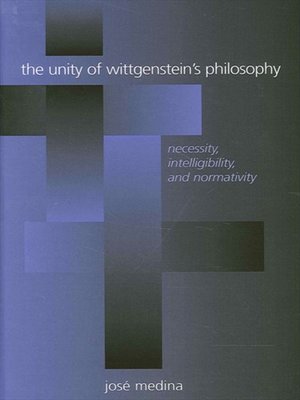The Unity of Wittgenstein's Philosophy
ebook ∣ Necessity, Intelligibility, and Normativity · SUNY series in Philosophy
By José Medina

Sign up to save your library
With an OverDrive account, you can save your favorite libraries for at-a-glance information about availability. Find out more about OverDrive accounts.
Find this title in Libby, the library reading app by OverDrive.



Search for a digital library with this title
Title found at these libraries:
| Library Name | Distance |
|---|---|
| Loading... |
Explores the stable core of Wittgenstein's philosophy as developed from the Tractatus to the Philosophical Investigations.
Exposing the myth of "the two Wittgensteins," this book provides a detailed account of the unity in Wittgenstein's thought from the Tractatus to the Philosophical Investigations. Unlike recent interpretations in the literature, this account is not the story of the unfolding of a single view, but instead the story of an ongoing conversation and its internal logic. Throughout his career, Wittgenstein argued that philosophical problems about the necessary and the impossible, on the one hand, and about the meaningful and the nonsensical, on the other, might be dissolved by means of an elucidation of ordinary language use. This approach always relied on the same strategy, namely contextualism. He identified decontextualization as the main source of philosophical confusion and argued that philosophical understanding consists of situating concepts in the normative contexts in which they function. This critical reconstruction contributes to the understanding of Wittgenstein's philosophy and illuminates contemporary debates concerning necessity, intelligibility, and the normativity of language.







